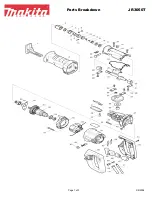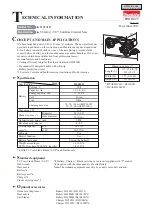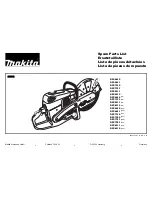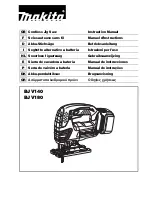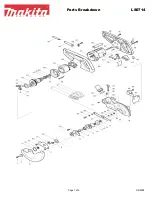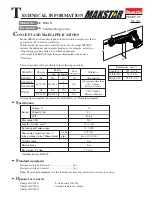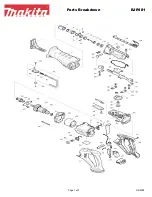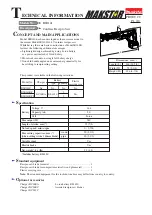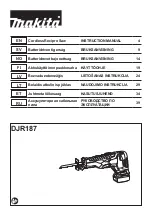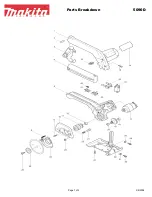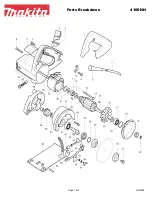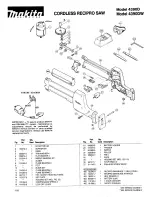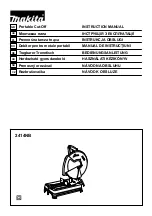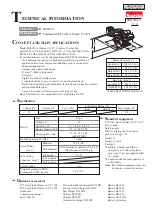
4
English
Important Safety Instructions for All
Battery Packs
When ordering replacement battery packs, be sure to include the
catalog number and voltage. Consult the chart at the end of this
manual for compatibility of chargers and battery packs.
The battery pack is not fully charged out of the carton. Before using
the battery pack and charger, read the safety instructions below and
then follow charging procedures outlined.
READ ALL INSTRUCTIONS
•
Do not charge or use the battery pack in explosive
atmospheres, such as in the presence of flammable liquids,
gases or dust.
Inserting or removing the battery pack from the
charger may ignite the dust or fumes.
• NEVER force the battery pack into the charger. Do not
modify the battery pack in any way to fit into a non-
compatible charger as battery pack may rupture causing
serious personal injury.
Consult the chart at the end of this
manual for compatibility of batteries and chargers.
• Charge the battery packs only in designated D
e
WALT chargers.
•
DO NOT
splash or immerse in water or other liquids.
• Do not store or use the tool and battery pack in locations
where the temperature may reach or exceed 104 °F (40 °C)
(such as outside sheds or metal buildings in summer).
For
best life store battery packs in a cool, dry location.
NOTE: Do not store the battery packs in a tool with the
trigger switch locked on. Never tape the trigger switch in the
ON position.
WARNING:
Fire hazard. Never attempt to open the battery pack
for any reason. If the battery pack case is cracked or damaged, do
not insert into the charger. Do not crush, drop or damage the battery
pack. Do not use a battery pack or charger that has received a sharp
Always use NIOSH/OSHA approved respiratory protection
appropriate for the dust exposure. Direct particles away from face
and body.
WARNING: Always wear proper personal hearing protection
that conforms to ANSI S12.6 (S3.19) during use.
Under some
conditions and duration of use, noise from this product may
contribute to hearing loss.
CAUTION: When not in use, place tool on its side on a stable
surface where it will not cause a tripping or falling hazard.
Some tools with large battery packs will stand upright on the battery
pack but may be easily knocked over.
• The label on your tool may include the following symbols. The
symbols and their definitions are as follows:
V ................... volts A ......................amperes
Hz ................. hertz W .....................watts
min ............... minutes
or AC ..........alternating
or DC ... direct current
current
................. Class I Construction
or AC/DC ...alternating
(grounded)
........................
or direct
................. Class II Construction
current
(double insulated)
no ....................no load
…/min .......... per minute
speed
BPM ............. beats per minute
n ......................rated
IPM ............... impacts per minute
........................
speed
RPM ............. revolutions per
.....................earthing
minute
terminal
sfpm ............. surface feet
.....................safety alert
.....................
per minute
symbol
SPM .............strokes per minute
....................visible
.....................
.........................
radiation
Содержание DCS381
Страница 2: ......






















